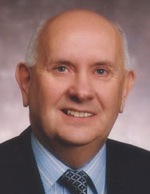Well this is disturbing. In defending his decision to keep the names of private donors to his campaign secret until after election day, Liberal Leader Stephen McNeil
cited privacy concerns. Since
provincial law requires the names and addresses of all donors, and the amounts of their donations, to be disclosed and published annually by Elections Nova Scotia, this looked like a feeble excuse to avoid drawing pre-election attention to any embarrassing donors on the Liberal list.
Now it turns out that Chief Electoral Officer Christine McCulloch handed McNeil—and the other three party leaders—a fig leaf they could use to hide any sketchy contributors from voter scrutiny.
Contrarian suspected as much when a candidate for the Green Party said they had intended to post their list of donors on the campaign website today, but were holding off because, "The Chief Electoral Officer apparently has concerns about compromising the privacy of individual donors by releasing their names."
This sounded absurd, so we checked with the Chief Electoral Office, where spokesman Dana Philip Doiron responded:
[T]he Chief electoral Officer has advised all registered political parties... that they should seek their own legal counsel before publishing the names and other personal information of contributors as they may be subject to the Protection of Privacy provisions of FOIPOP [the Freedom of Information and Protection of Privacy Act], while the reporting by Elections Nova Scotia is deemed to be in the public interest and not subject to FOIPOP.
A quick read of the FOIPOP act confirms the obvious. It applies only to "records in the custody or under the control of a public body, including court administration records." It has no conceivable application to records held by a political party.
05 June, 2009

 The
The  [/caption]
Liberal leader Steven McNeil tries to draw a distinction between political contributions from unions and those from corporations on the grounds that the next premier will have to negotiate with unions.
In fact, the next government is far more likely to find itself negotiating with the companies owned by John Bragg, whose Oxford Seafoods Ltd. is one of McNeil's two largest donors, than with the Mainland Building and Construction Trades Council and its member unions.
Bragg's companies, including Eastlink, have multiple business dealings with the province, including bidding on contracts and receiving loans and other assistance. The Trades Council negotiates mainly with a parallel employers' council consisting of large construction companies. Its members are not public sector unions and would have little occasion to negotiate with government.
[/caption]
Liberal leader Steven McNeil tries to draw a distinction between political contributions from unions and those from corporations on the grounds that the next premier will have to negotiate with unions.
In fact, the next government is far more likely to find itself negotiating with the companies owned by John Bragg, whose Oxford Seafoods Ltd. is one of McNeil's two largest donors, than with the Mainland Building and Construction Trades Council and its member unions.
Bragg's companies, including Eastlink, have multiple business dealings with the province, including bidding on contracts and receiving loans and other assistance. The Trades Council negotiates mainly with a parallel employers' council consisting of large construction companies. Its members are not public sector unions and would have little occasion to negotiate with government.